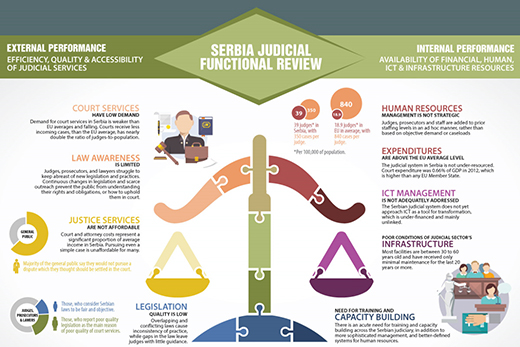“The accession process today is more rigorous and comprehensive than in the past. This reflects the evolution of EU policies as well as lessons learned from previous enlargements. (…) The rule of law is now at the heart of the enlargement process. This new approach will shape the Commission’s work with the enlargement countries.”
Enlargement Strategy and Main Challenges 2013-2014, European Commission
A well-functioning justice system is an important condition for any country, and it is essential for supporting economic growth and shared prosperity around the world.
For countries aspiring to EU membership, a well-functioning judiciary takes on an additional dimension – it is an imperative pre-requisite for EU accession. And, despite concerns of crisis and instability in recent years, the prospect of EU accession remains a compelling motivator for candidate countries.
Under the European Commission’s new more rigorous approach to rule of law, candidate countries must now demonstrate that their courts function to certain standards, and that the system serves its citizens well terms of resolving disputes and enforcing rights. This requires significant transformations in areas such as judicial independence, court system efficiency, access to justice and the fight against corruption. The Commission will be monitoring progress closely in these areas, among others.
But how does one measure justice? How do you assess the functioning of a country’s justice system? And how high must candidate countries jump to meet these EU standards? These are questions that the Government of Serbia is posing at the outset of EU accession negotiations.
The Serbia Judicial Functional Review adopts an innovative and evidence-based approach to this challenge of measuring justice.
The Judicial Functional Review, requested by the Serbian authorities and the European Commission, provides a detailed baseline assessment of the current functioning of the judicial system in Serbia vis-à-vis EU standards. According to Georgia Harley, World Bank Justice Reform Specialist, "The assessment had to be comprehensive and objective – something that both sides would trust and use as a shared tool.’

